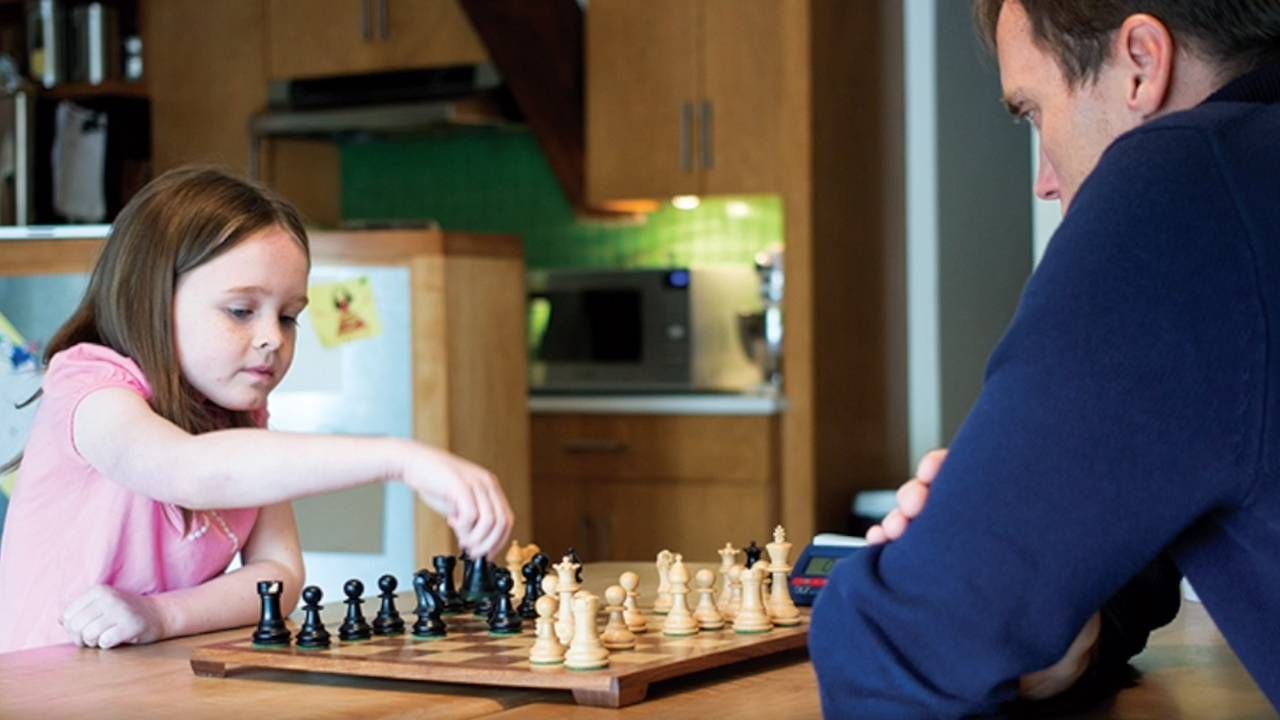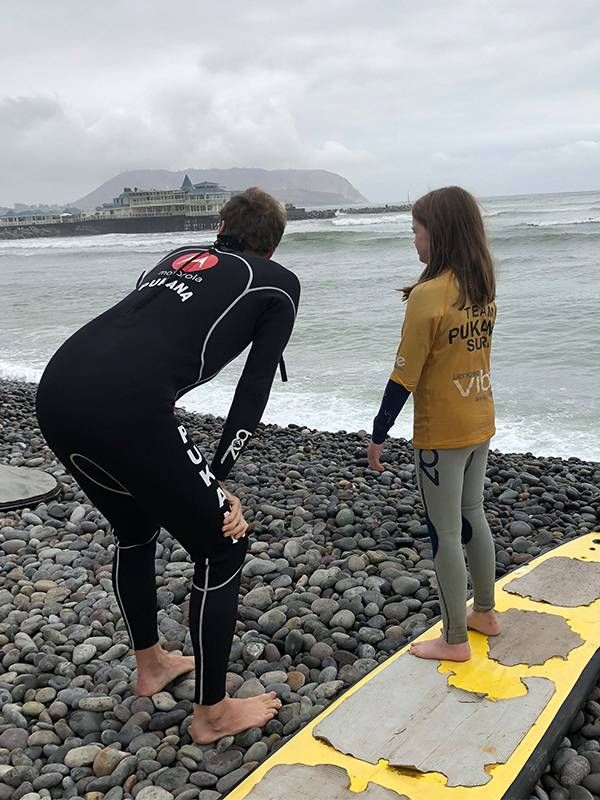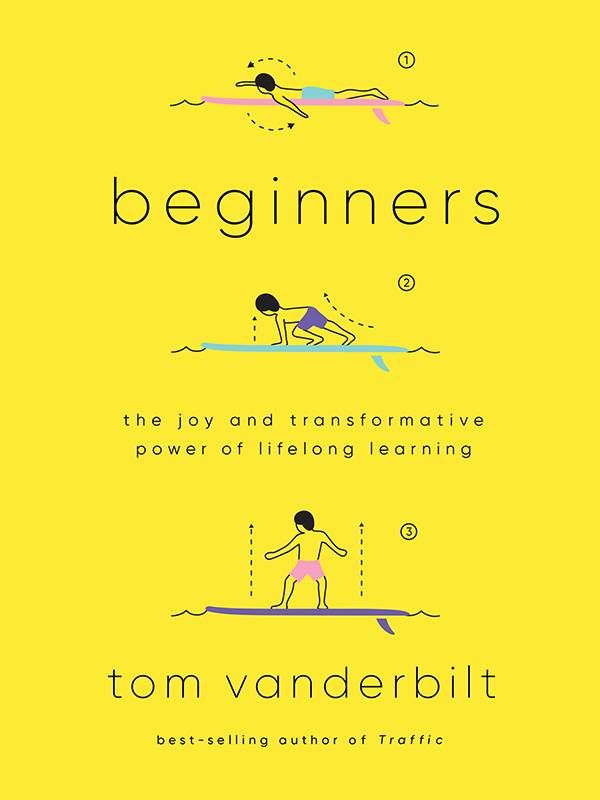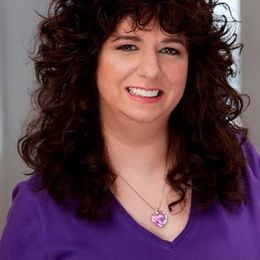Beginning Again...and Again...and Again
In his new book, 'Beginners,' Tom Vanderbilt shows that you’re never too old to learn something new
When I texted a friend and said I had been taking drum lessons at age 50 and a year later was about to play a song with a band in a local two-day fundraising music festival in Maryland called Stanstock, he texted back one comment: LOL.

While some folks made jokes about it being a midlife crisis, more were supportive. One said she was inspired by me and began taking guitar lessons, which she had wanted to do her entire life.
The adage, "You can't teach an old dog new tricks" has worked against people for ages. But not anymore.
Bestselling author and journalist Tom Vanderbilt, in his book titled "Beginners: The Joy and Transformative Power of Lifelong Learning," tackles lots of new activities such as chess, riding a surfboard, singing in a choir in Manhattan called Britpop, learning to juggle, drawing, helping to craft his replacement wedding ring (he lost the other one surfing) and more.
Vanderbilt, 52, spoke with Next Avenue about what it's like being a beginner. What follows is a version of our interview, edited for length and clarity.
Next Avenue: What was the impetus for you to start writing this book?
Tom Vanderbilt: The short version is that I suddenly found myself as a parent taking my daughter to all kinds of things -- classes, after-school activities. [She was a four-year-old at the time, now she is eleven.] I was hiring, when I could, coaches or tutors because I wanted her to have the experience of learning as many things as possible to be able to dabble and -- without the pressure to be good at everything -- to be good at these things.

I found myself sitting on the sidelines. I was wondering: Was I sending her the wrong message in terms of being a good model because I was telling her how important it was for her to learn all these new things? Because when she looked at me, what was I actually learning? I was sort of doing a few things I had always done, and I was, of course, busy working and being a parent. But I wasn't really living this life that I was telling her was so important.
So, I thought it would be interesting to try to change that — sometimes with her, sometimes just on my own. That was the basic impetus, and it began with one small thing. From there, it grew.
Did it begin with chess or something else?
Chess. This was something my daughter wanted to genuinely play. She was curious about it. I had never really gotten around to playing, and I tried to pick it up myself. But I didn't feel confident that I would be the best person to teach her or teach myself. I like to learn from experts.
There were all kinds of benefits. I was able to appreciate how hard it might be for her, because I was also going through that myself. She could see me struggling with this thing, and maybe that would encourage her to try harder because it turns out adults also struggle. They don't just magically know everything.
What activities are you still engaged in?
It's a combination of what are the things we genuinely enjoy doing, and what are the easiest things to do. Not necessarily easy in terms of skill level, but just easy to actually find the time for, or the opportunity for.
"I think singing was the thing that resonated with me the most because it just makes me feel good and I enjoy doing it."
I think singing was the thing that resonated the most because it just makes me feel good, and I enjoy doing it. But then it's just so portable and easy to access. I don't need special equipment. I don't need to go somewhere. The conditions don't have to be right.
I would love to be able to surf every day, but I don't live exactly on the beach. It takes a bit of effort, and then the conditions have to be right in the ocean, which doesn't always happen.
There are a lot of people who, especially in our age group and older, are apprehensive about trying something new. Part of it is because they know they're going to start out and be bad at it. Why would you suggest that people still put themselves out there to be beginners, whether they're good at something or not?
Sometimes it's easier said than done, but to really try to approach it like a child. One of the reasons children learn so particularly well is that they have such a low-pressure environment in which they learn. They have a very supportive audience. They're encouraged all the way.
Mistakes don't loom as such a big thing. No one expects a young child to be particularly good at something in the beginning, and there aren't really strong or strict goals that are generally put out there. And if they are, it's probably a bad thing.
But we learn these key skills that we have, as humans, in such a natural, immersive, low-pressure environment — like walking or talking. Of course, we're bad at them in the beginning, but we get better.
Just expect that failure is going to be part of your process, and failure represents learning. If you already knew how to do it, you wouldn't be learning.
Another thing that helped me was to do classes where there were other beginners, because then you felt a certain camaraderie. You could see other people making mistakes. Seeing other beginners — knowing that you're not alone — also provides a great source of motivation.
Taking singing lessons was great fun, but once I joined the choir, I felt like the stakes had become higher. I now had certain responsibility, not just to myself, but to other people to try to do it well. So that encouraged me to practice more.
In all the activities you tried, at some point, someone said to you that you were doing pretty well. Suppose you had tried something and they said, 'You just don't have it.' Would you have continued if you liked it or would you not?
It is powerful to be told by someone, like a drawing instructor saying your drawing's really good, and it provides such a burst of motivation.
It doesn't really serve anyone to give extremely negative feedback, but there were literally things that I failed at on my own that have been a barrier to motivation. I mean, with juggling, for example. I just cannot get five-ball juggling, which is incredibly hard.
"People shouldn't be afraid to stop something if it's not really working for them."
It is easier to do things once you feel like you have a shred of proficiency. But that didn't always come early for me.
There were things that I psyched myself out of. I took this welding course, and it was interesting, and I really liked the raw nature of working with metal and fire, and it felt fun, but I decided on my own that I'm not that good with working with my hands. Maybe if I had felt more of a desire, I would've continued.
People shouldn't be afraid to stop something if it's not really working for them. It's your free time. Do with it what you want. You don't have to feel guilty about quitting. There's many, many things you can take up in the world. You don't have to achieve mastery in any of them.
Throughout this process, what were some of the most surprising things you learned that you didn't expect would come from this project?
One of them had to do with the skills themselves. For example, seeing how much of it really is like a sport that you would try to pick up, like golf or tennis.
It's more of a challenge with singing because you can't actually see any of those muscles and you can't feel like you really control them individually. But a lot of the things I was learning were just different than I imagined they would be. I imagined singing would be a much more natural learning process where we would just start sort of singing songs, and it would just flow. But it really was like learning any other instrument.

You always took lessons from a pro. Do you think that all beginners have to?
No, not at all. People have learned and become quite proficient on the guitar watching YouTube because YouTube is this great venue for learning things through mimicry, which is really how humans are set up to learn — by watching how other people do things.
There's just so many opportunities that are out there. If there's something to be learned, someone is teaching it somewhere online. In some cases, it comes down to a personality thing; that some people are just better set up to do the self-teaching approach.
Both from a feeling of competency and motivation, I really preferred to work with experts when I could. Also, I wanted to find out about the process and get stories from those people. So, if the entire book was just about me learning things by myself, it might be a little too claustrophobic for the average reader.
I'm just the kind of person who is naturally a bit apprehensive about taking things on myself.
Some people have more confidence in that kind of exploratory process and figuring it out for themselves and failing by themselves.
In your book, you wrote 'Do not worry how well you're doing them [the activities].' But sometimes you did. How do you get past it?
It's a natural human impulse to want to achieve some level of mastery in what you're doing. In terms of something like surfing, you don't want to hurt yourself and you want surf-level proficiency as soon as you can.
I think adults have this negative inner critic, this form of self-talk, that is just very aware of how we are. And that's what keeps people precisely from starting new things, because they can sense how bad they might be in the beginning, and it just keeps them away from it.
"It's a natural human impulse to want to achieve some level of mastery in what you're doing."
When I said don't worry about it, [I meant] you will get there. You will get better. But there's going to be that rocky period in the beginning.
Beginners sort of get a free pass in the world. Adults taking on something like snowboarding — if you're in your fifties, a lot of people are going to be surprised. Then that surprise will also give a certain latitude, like 'that's cool you're trying.' People might give you a little bit more leeway than a twentysomething, just because it's unexpected.
Do you think you'll keep trying new things like this now that the book is done?
Yeah. I think it's become a little bit hardwired into my brain.
If there was just one message that you would hope readers would take from your book, what would it be?
Just go out and do something. Don't let that inner, negative self-talk or the idea that you might be too old or that you might not have talent for something prevent it. There's so much that can happen in even ten hours of trying to learn something; it can be such a rewarding and energizing experience.
I think the hardest thing about being a beginner is just making that first call, signing up for that class, walking into the class on the first day. But it gets easier.


